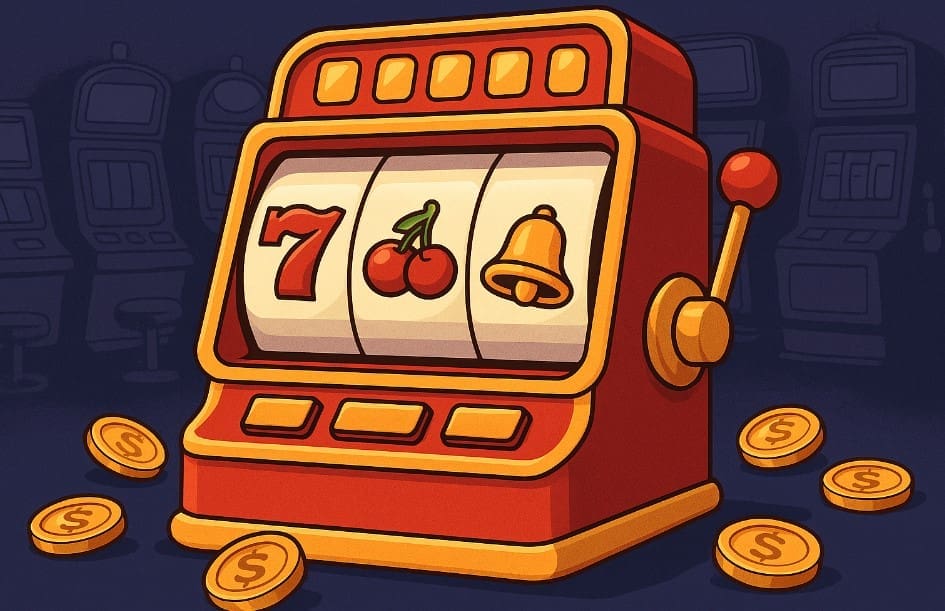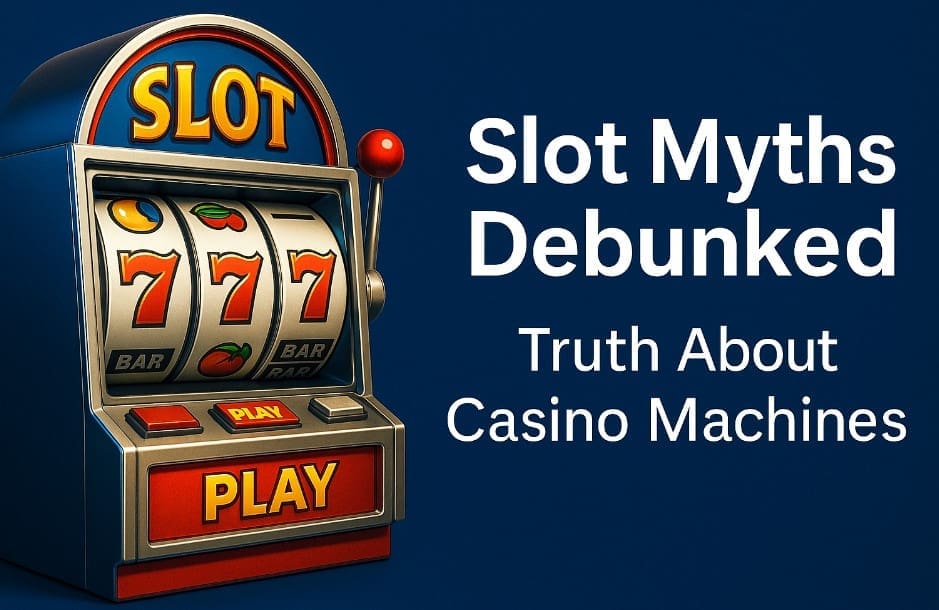Slot machines are like campfire stories—half truth, half superstition, sprinkled with just enough luck to keep everyone guessing. Spend a few hours on a casino floor and you’ll overhear the same whispered tips: “That one’s about to hit,” “Always bet max,” or my personal favorite, “Don’t walk away now, it’s warming up.” People love to explain wins and losses with neat little myths, because randomness is hard to make peace with.
Let’s get into the biggest ones, and along the way I’ll share a few of the things I’ve seen that make these myths so sticky.
Why myths about slots hang around
Casinos feed imagination. The lights, the clinking sounds, even the carpet patterns—it all sets the stage for magical thinking. Players swap stories, and those stories mutate into rules. “My aunt hit a jackpot after midnight,” or “the corner machine never pays.” After enough retellings, they start sounding like truth.
I still remember my first time in a Vegas casino. A man leaned toward me and whispered, dead serious: “Stick to the machine near the cashier, that’s where the payouts happen.” I almost believed him, until I lost twenty bucks in under five minutes. Myths survive because they make you feel like you have insider knowledge, even when the math says otherwise.
Myth: Slot machines are “due” for a win
This is the king of slot myths. You’ve probably heard it—if a machine hasn’t paid in hours, it must be ready to explode. It’s comforting, like thinking the universe balances itself out.
But slots don’t keep a diary of your bad luck. The random number generator (RNG) running inside couldn’t care less if you’ve been losing all week. Every spin is independent, like tossing a die. I once watched a guy pound the same button for half an hour because he was “priming” the machine. Spoiler: he primed his wallet right into the casino’s pocket.
Casino location makes machines looser
It’s a romantic thought: casinos planting “loose” machines near doorways so passersby see winners and get tempted inside. Maybe back in the days of coin buckets and smoky lounges that made sense. Today, most modern slots are connected to central systems with fixed payout percentages. Whether the machine sits next to a cocktail bar or tucked away near the restrooms, its odds don’t change.
Funny enough, I tested this once with a friend. We each picked machines—me in the back corner, her by the escalator. She hit a mini bonus, I didn’t. She grinned and said, “See? Location.” But the next day we swapped spots and I came out ahead. Randomness doesn’t like to stick to rules.
Timing your spin boosts chances
Some players tap the spin button like they’re entering cheat codes. They’ll wait, count in their head, press at the “perfect” moment. The truth? The RNG is cycling through numbers in microseconds. By the time your brain decides to push, the result is already sealed.
I once tried to “time” a spin in an online slot, hitting the mouse right after the reels blurred. Did I win? Nope. But I did get a free pop-up from the casino offering me bonus spins—timing only helped with that.
Player cards mess with your odds
There’s a weird suspicion around player cards: that casinos punish you for using one by tightening odds, or reward you for not using one to lure you back. Neither makes sense. Those cards are just tracking tools for comps—free drinks, hotel discounts, maybe a buffet coupon if you’re lucky. They don’t rewrite the math of the game.
If they did, regulators would have a field day shutting places down. The casino already has the edge built in, no secret tweaks needed.
Myth: Bigger bets mean better chances
I’ve met players who treat “max bet” like a golden key. Truth is, betting more can increase jackpot eligibility or the size of your win, but the odds of hitting remain the same.
A buddy of mine once waved his hand at me while hitting max spins: “You gotta play like a high roller to win like one.” Ten minutes later he was sulking at the bar, wallet empty. Higher bets don’t bend the RNG—they just burn your bankroll faster.
Myth: Hot and cold machines

People swear machines go through moods. A hot streak? Ride it out. A cold one? Abandon ship. The reality is simpler: streaks happen because randomness clumps. Ever rolled dice and hit the same number three times in a row? It feels supernatural, but it’s just probability doing its thing.
I watched a woman once hover behind a machine like a hawk, convinced the guy sitting there was “warming it up.” The second he stood, she swooped in—and sure enough, she won a few spins later. The whole row cheered. But if you stuck around long enough, you’d see her give it all back. Randomness doesn’t remember who was sitting where.
Myth: Casinos flip a switch on payouts
I’ve heard this whispered with a wink: “They turned my machine cold once I was up too much.” It sounds dramatic, but not realistic. Changing payout settings is a regulated process. In many places, it requires paperwork, audits, or even physical chip swaps. It’s not a switch a pit boss casually flips when you’re smiling too wide.
What actually happened? You hit a streak, then variance caught up. It feels personal because money’s involved, but it’s just math doing what math does.
Myth: Payout patterns can be cracked
Some players keep notebooks filled with spin outcomes, convinced they’re spotting a code. It’s a seductive thought—you against the machine, trying to outsmart it. Sadly, there’s no code to break. Each spin is independent. Tracking patterns is like writing down the results of roulette hoping the wheel develops a memory. Spoiler: it doesn’t.
How slots really tick
Underneath the graphics and sound effects, every slot runs on RNG software that spits out thousands of numbers per second. When you press spin, it freezes a sequence and translates that into reel positions. That’s it.
The RTP (Return to Player) percentage is pre-set—often 85–98 percent—meaning over millions of spins, the machine returns that proportion of money wagered. You can have two identical sessions on the same game, one ending with champagne and the other with an empty wallet, and both are still within that long-term math. Volatility also shapes the ride: low-volatility slots drip out smaller wins, high-volatility ones are more feast-or-famine.
What actually helps
Here’s the part most people don’t want to hear: there’s no secret handshake to beat the odds. But you can play smarter.
- Pick games with RTP and volatility you like: Some people love steady drips, others chase jackpots. Know your style.
- Decide your limit before you sit: Walking in with a number keeps losses from creeping up.
- Use the player card: Free meals and rooms won’t change the odds, but hey, they’re value.
- Don’t chase “due” machines: They’re not due. Ever.
- Remember it’s entertainment: Think of wins as surprises, not salary.
FAQs about slot myths
Do casinos rig slots?
Not in licensed casinos. Regulators test machines, and casinos don’t need to cheat—the math is already in their favor.
Are online slots fair?
Yes, if they’re from licensed operators. The RNGs are certified just like land-based ones.
Can payouts change overnight?
Sometimes, but it’s a formal process. Think software updates with oversight, not a pit boss hitting a button.
Is there a lucky time to play?
Nope. Morning, midnight, Christmas Eve—your chances are exactly the same.
Do bigger casinos have looser slots?
Not really. Odds depend on regulations and operator choices, not how many chandeliers the casino can afford.


